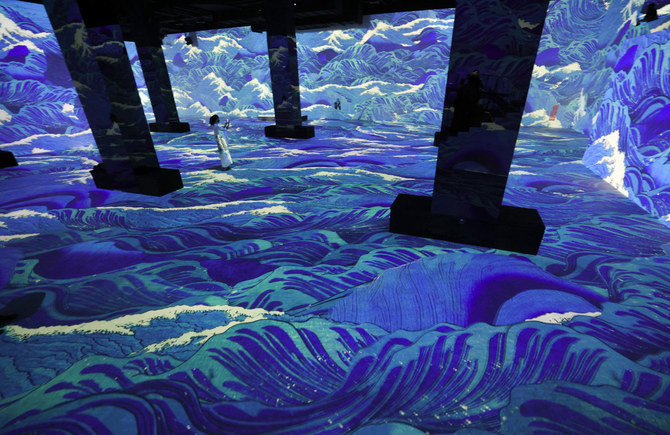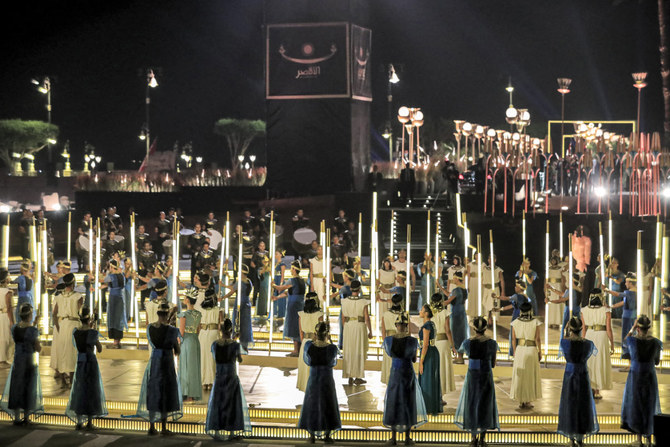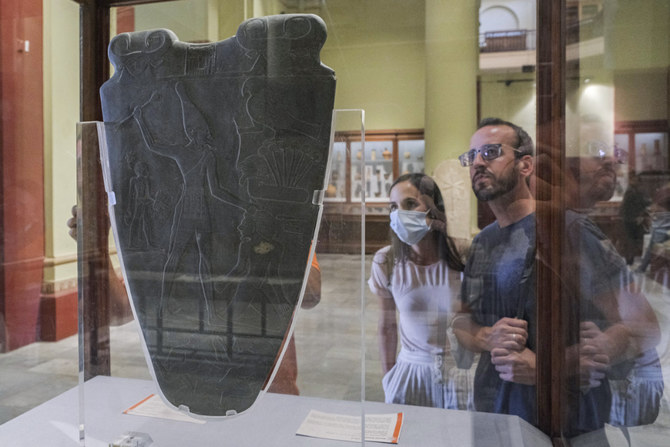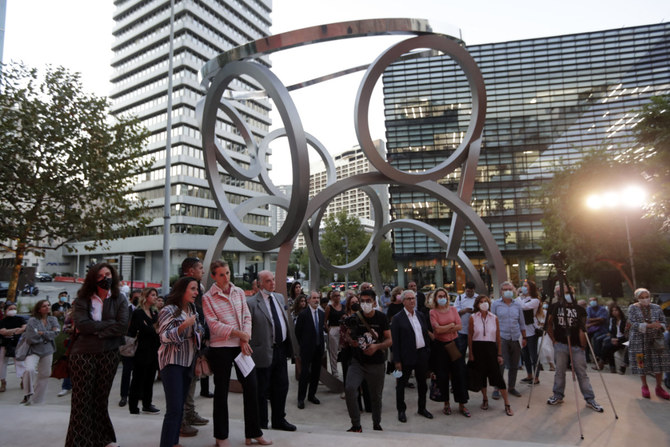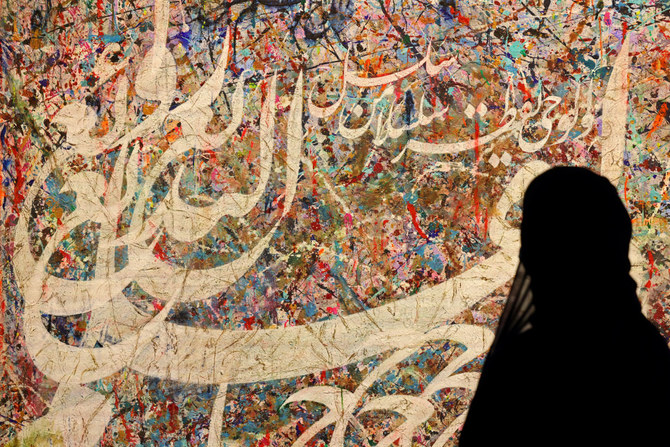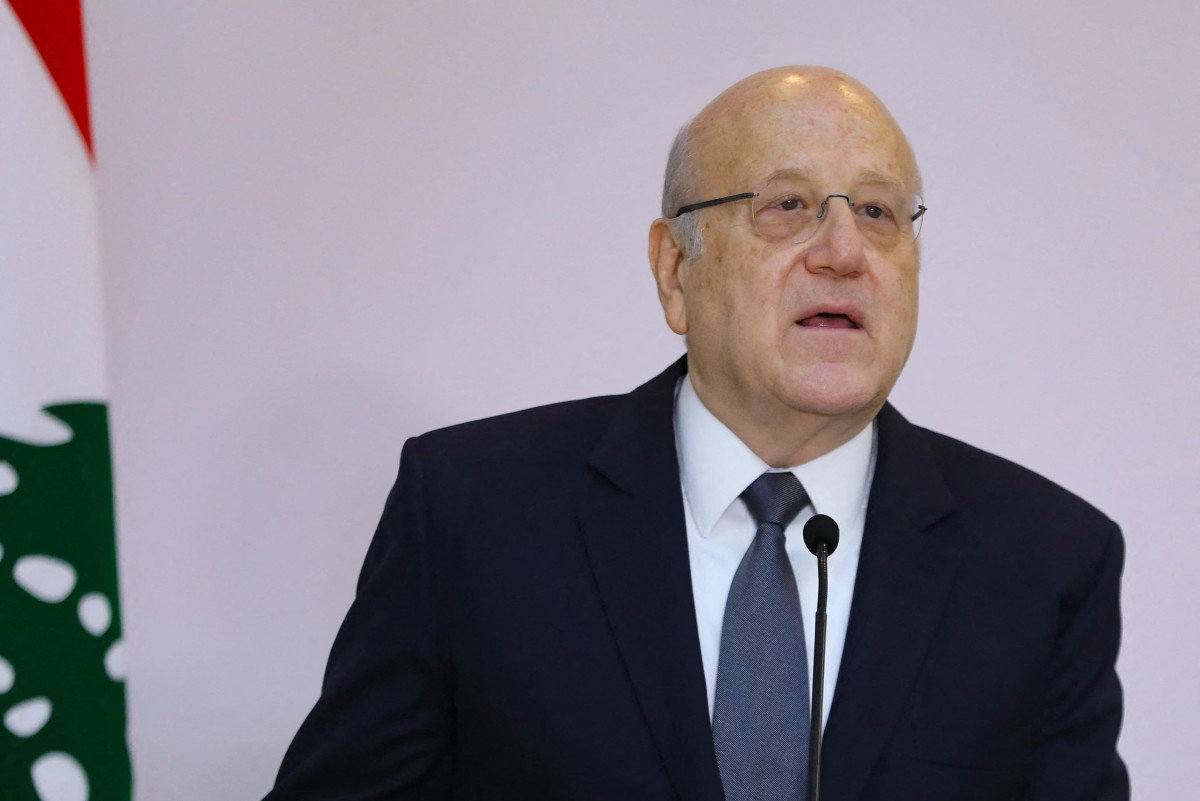DUBAI: A century ago, as humanity emerged from the privations of the First World War and the Spanish flu, a wave of creative energy suddenly swept the globe. From London to New York and from Sydney to Tokyo, the decade known as the Roaring Twenties heralded an age of unprecedented cultural exuberance, prosperity and industrial advances.
New technologies, from automobiles to wireless radios, hit the consumer market, and a new zest for life, evident in such fields as music, art and interior design, replaced the drabness and conservatism of the pre-war age.
The phenomenon was viewed as a reflection of a pent-up desire to make up for lost time — a feeling perhaps best captured by F. Scott Fitzgerald’s 1922 novel, “The Great Gatsby.”
A century on, as the world takes its first tentative steps out of the gloom and turmoil of the COVID-19 pandemic, many are already drawing parallels between this romanticized period of cultural, economic and technological hyperactivity and the somewhat delayed promise of the 2020s.
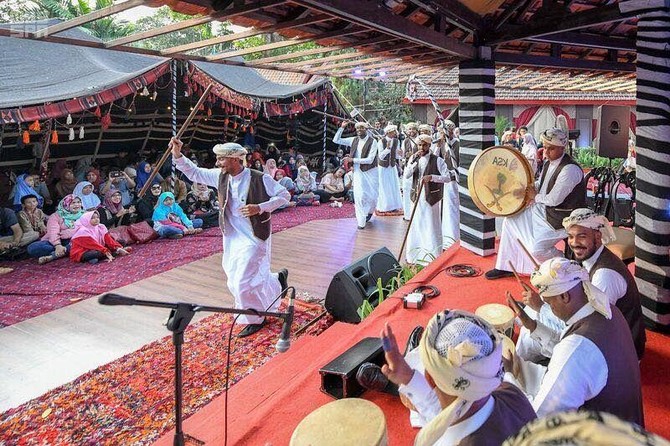
The Saudi House had been showcasing Saudi cultural heritage to various audiences. (SPA)
The rollout of vaccines and falling rates of infection in mid-2021 allowed governments to ease lockdown measures and for world travel to resume. That is, until omicron emerged.
The emergence of yet another highly transmissible variant of the virus in November has shown that the pandemic is not yet over.
Far from roaring into 2022, many nations have once again opted to impose new restrictions, closures and postponements at museums, galleries, leisure facilities and performances venues.
How the latest wave of restrictions impacts the ambitions of the Gulf states remains to be seen.
Take Saudi Arabia. The Kingdom has been experiencing nothing short of a cultural revolution. After decades of self-imposed isolation, it hosted scores of “first-time” events in the arts, culture, sports and entertainment industries in 2021.
The words “game-changing” and “historic” could be heard on many lips during the month of December as the Kingdom hosted the inaugural Diriyah International Art Biennale, the first Philosophy Conference, the Red Sea International Film Festival and the first Saudi Arabian Grand Prix.

The region has also welcomed the world’s favorite sports, with Formula One making its Saudi debut last month. (AFP)
“The change has happened so fast. We are exhausted but so excited and inspired,” one Saudi artist taking part in the Misk Art Institute’s Masaha Residency told Arab News.
The cultural explosion has a lot to do with the Kingdom’s commitment to expanding new and exciting aspects of its economy under the Vision 2030 reform agenda.
The Saudi Ministry of Culture was established just three years ago. Since then, with the launch of the National Culture Strategy and 11 sector-specific commissions, the Kingdom has created a vibrant cultural ecosystem.
Since early December, the Kingdom has presented “a true cultural spectacle of more than 100 events, initiatives and engagements,” according to the Saudi Ministry of Culture.
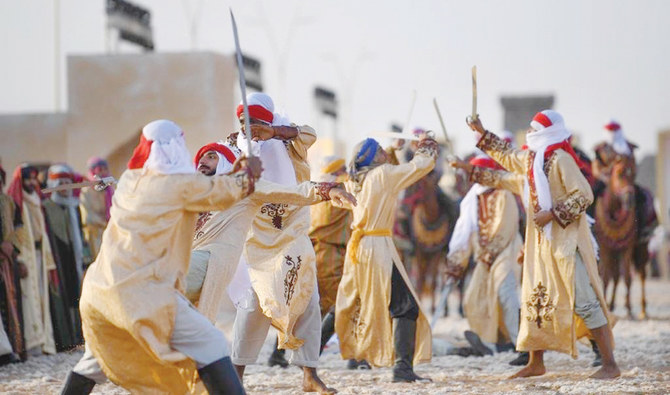
Taif Season consists of more than 70 events in areas including Souq Okaz, Sadat Al-Beed and Ward Village. (SPA file photo)
The spectacle included the return of Desert X — an exhibition of monumental artworks displayed among the ancient ruins and desert landscape of AlUla.
More recently, the Saudi government announced a new $20 billion master plan to create “a world-class destination” called New Jeddah Downtown in the heart of the Kingdom’s historic Red Sea port city, which will include a museum and an opera house.
FASTFACTS
No plans to postpone major art events in KSA and UAE.
Saudi Arabia hosted a record number of cultural events in 2021.
Dubai aims to become a global creative economy by 2025.
“Change has always been a constant in social development,” Ashraf Fagih, head of programming at Ithra, the King Abdulaziz Center for World Culture, which opened in Dhahran in 2017, told Arab News.
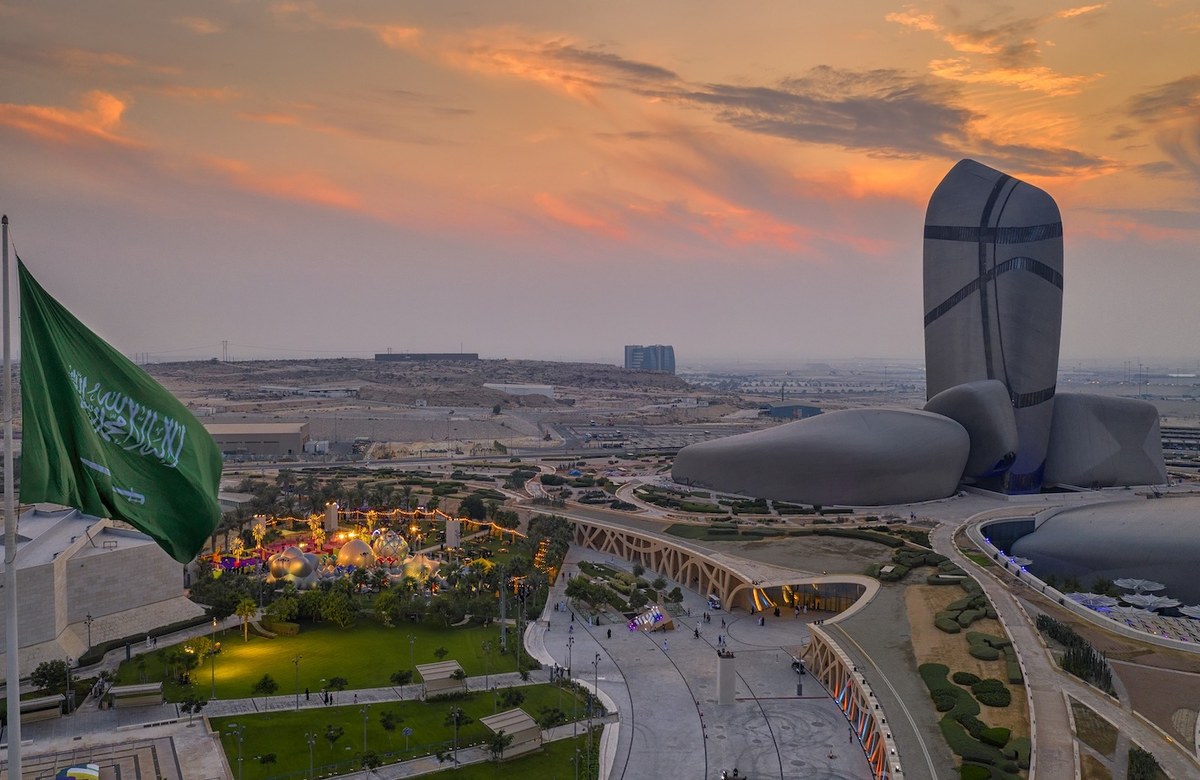
The King Abdulaziz Center for World Culture, of Ithra, in Dhahran. (Supplied)
“Vision 2030 propelled us ahead, opening the doors to the Kingdom’s cultural renaissance, and the pandemic ensured that we were dynamic, resourceful and creative enough to see this change through, together as a thriving society.
“As an economic enabler, cultural catalyst and global gateway, we at Ithra were at a crucial point in bringing Saudi’s cultural scene forward to the rest of the world prior to the pandemic, which was backed by the unwavering efforts and unlimited talent pool of creatives who made it come to life in the first place.
“To ensure it would not lose that momentum, we put our creativity to the test and pulled together to ensure we safely delivered this mission at a time of remote connectivity — united.”
Indeed, unity has been essential to the survival of the creative industries through the darkness of the pandemic, as the ban on exhibitions and performances undermined opportunities for artists and performers to work and grow.
“The horrors of COVID-19 have drawn together the cultural community,” Alia Al-Senussi, a noted art patron, consultant and scholar who has worked closely with cultural organizations in Saudi Arabia, told Arab News.
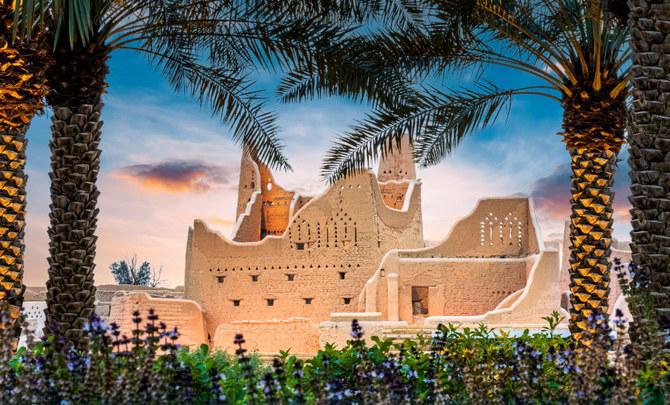
Saudi Arabia’s Diriyah has been named the capital of Arab culture for 2030. (@MOCSaudi)
“There has been this hope that we are getting through this dark period through all these wonderful shows in Europe, art fairs such as Art Basel and the recent Diriyah Biennale. But we can’t forget all the suffering that is still taking place. In 2022, there is a hope in embracing that sense of community through cultural enterprise.”
The same cultural vitality is on show in the UAE. In Dubai, open borders, high vaccination rates, widely available testing, and new visa schemes designed to encourage expatriate entrepreneurs have lured thousands of talented individuals and investors.
In spring 2021, the city staged Art Dubai, the world’s first major in-person fair since the easing of lockdown restrictions. Even as omicron takes hold, there are no plans to cancel forthcoming events in the cultural calendar.
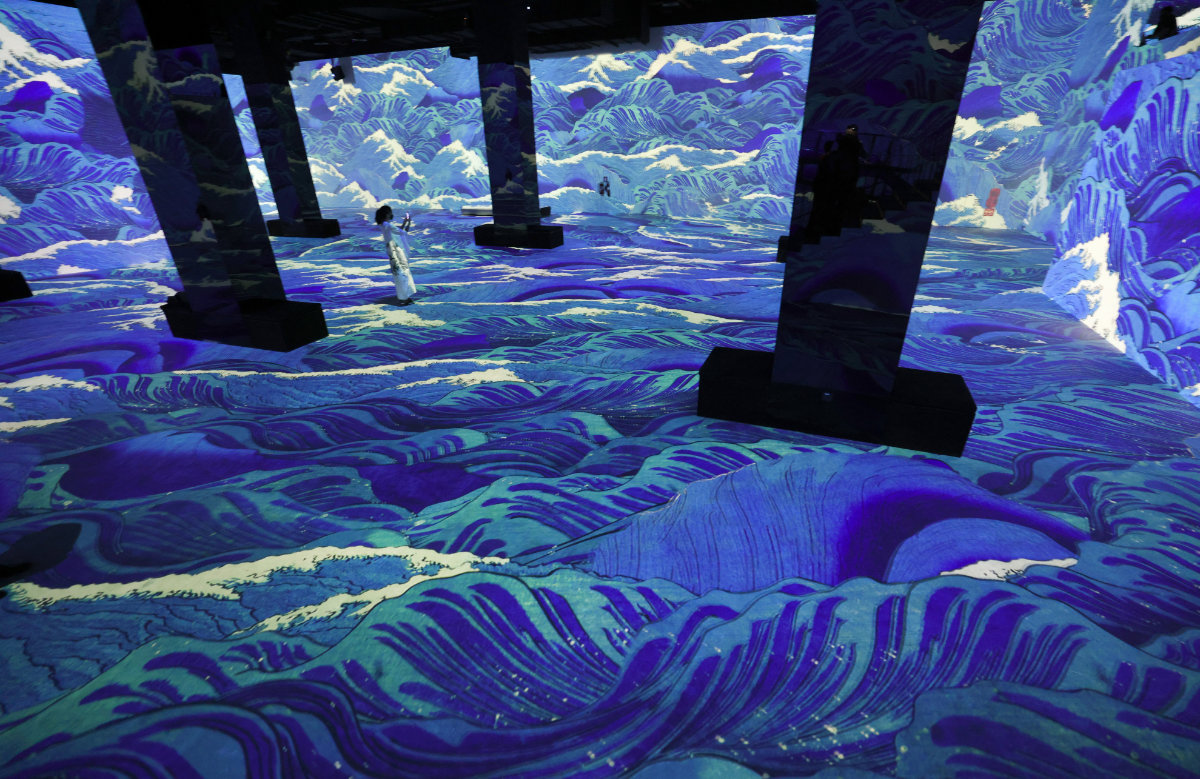
The explosion of artistic events in the region, such as the ‘Infinity des Lumieres’ exhibition in Dubai last June have been credited to the reforms in the Gulf. (AFP)
“Yes, COVID-19 hit Dubai hard like everywhere else, but the way the government handled it, including leading the world in vaccinations, meant that the city was able to adapt and bounce back quickly,” Ben Floyd, CEO of Art Dubai, told Arab News.
Art Dubai was able to go ahead last year “because we could see that Dubai was attracting high-net-worth families and businesses from all over the world, and we had confidence that we could produce a successful event,” he said.
Will 2022 be any different? Floyd put it this way: “We have had more gallery applications than ever, and plan to further innovate our offer.
“We will be launching a new digital section in response to both the growing tech community here in Dubai and the increased interest in producing and collecting digital art and NFTs.”
November’s Dubai Festival for Youth Theatre, organized by the Dubai Culture and Arts Authority, saw unprecedented participation from 14 theater groups from across the nation.
Then, in early December, Dubai Culture and the Department of Economy and Tourism launched “Creatives Journey,” a new initiative targeting people in creative industries looking to launch their own businesses.
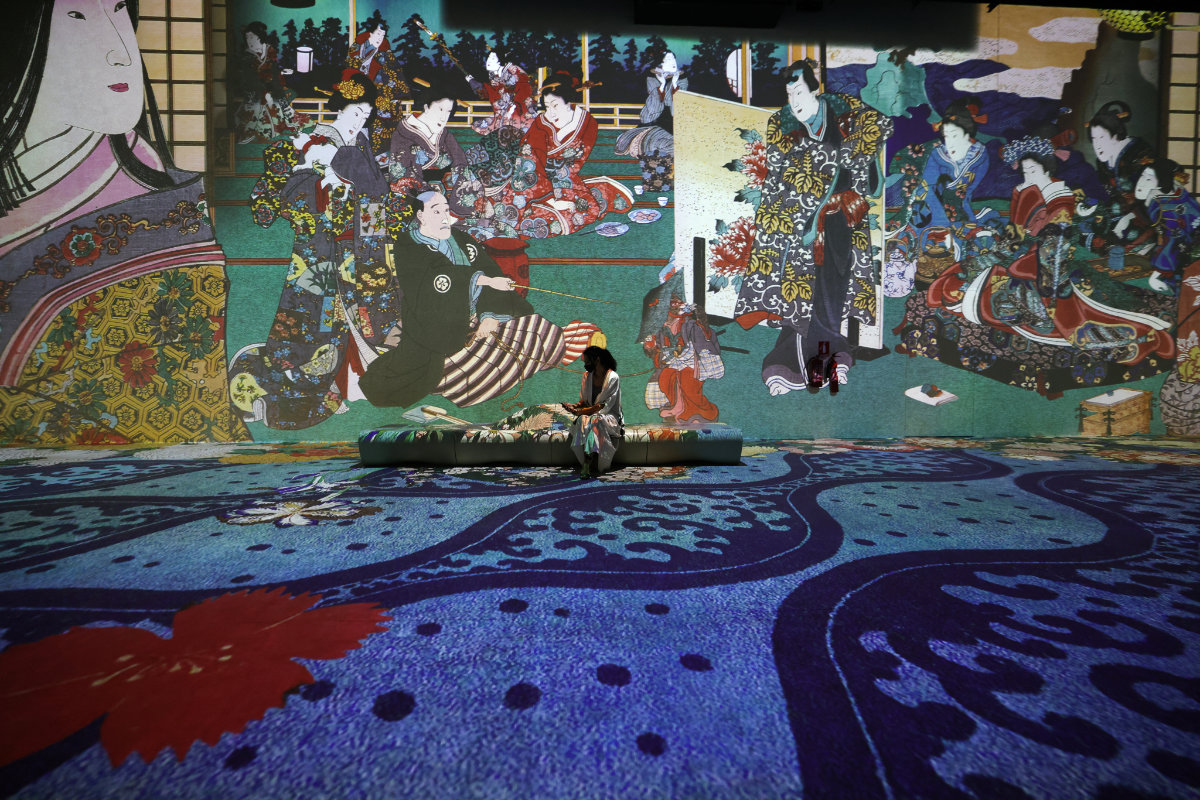
Shoppers and art lovers are now able view masterpieces projected onto walls and floors in an immersive experience at Dubai Mall in Dubai. (AFP file photo)
Meanwhile, Abu Dhabi announced in June that it would invest $6 billion in cultural and creative industries on top of the $2.3 billion already pledged as part of its post-pandemic stimulus program.
On Dec. 29, Dubai Culture launched the first ever “Creative Dubai: Dubai’s Growing Cultural Industries” report, providing a comprehensive overview of the Emirati cultural sector and charting a roadmap for its growth.
According to the report, Dubai’s cultural and creative sector contributed about 4 percent to total economic output in 2019. The sector generated revenues of more than AED37 billion ($8.5 billion) that year and employed more than 108,000 people.
In fact, Dubai, which has more galleries than any other city in the Middle East and North Africa region and some of the fastest growing household spending on cultural activities, ranked among the 10 most influential cities in the world in the FutureBrand Country Index 2020.
That being said, the cultural renaissance sweeping the Gulf has been less evident elsewhere in the region, where the pandemic and resulting economic hardships have placed creative pursuits lower down the list of priorities.
Lebanon was once the region’s capital of art and culture. But with the onset of the 2019 financial crisis, the pandemic, political paralysis, energy shortages and the collective trauma of the Beirut port blast, day-to-day survival has taken precedence.
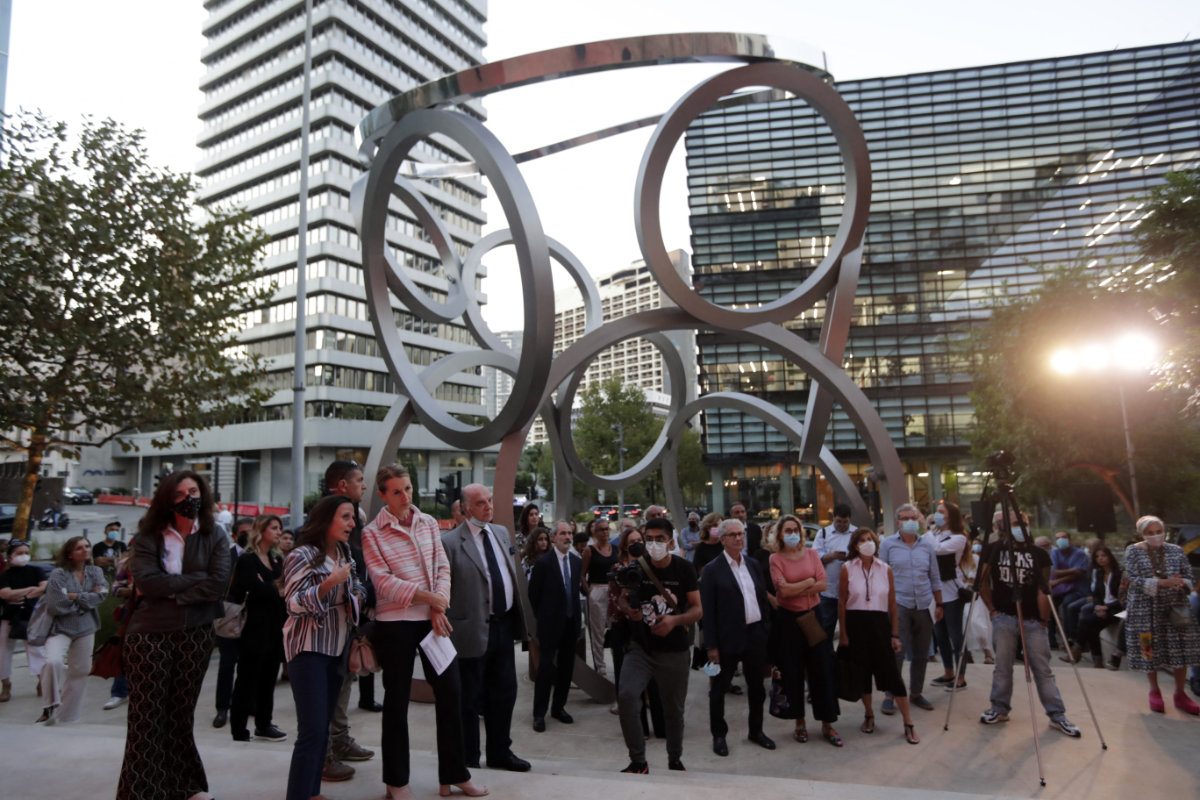
Lebanese sculpture Nayla Romanos Iliya's artwork entitled 'On the Other Side of Time' on permanent artwork display in front of St. Elias church Beirut, Lebanon. (AFP file)
“The Beirut explosion was more powerful than COVID-19, and the country is collapsing at an incredible speed at all levels,” Saleh Barakat, a Lebanese gallerist, told Arab News. “Here you don’t have fuel, electricity or even water, because they can’t pump it. All we can do is go on.”
Even so, green shoots of cultural activity have somehow broken through the dense layers of despair.
“If you come to Beirut, you will be amazed at the quantity of exhibitions,” said Barakat. “It is not economic. It is the result of our desire to go on with life. This is how we fight.”
The decade may not be this century’s Roaring Twenties as imagined or perhaps hoped for, but the same impatient urge to move on from past upheavals, embrace new aesthetics and make up for lost time is plain to see.
____________
• Twitter: @rebeccaaproctor


